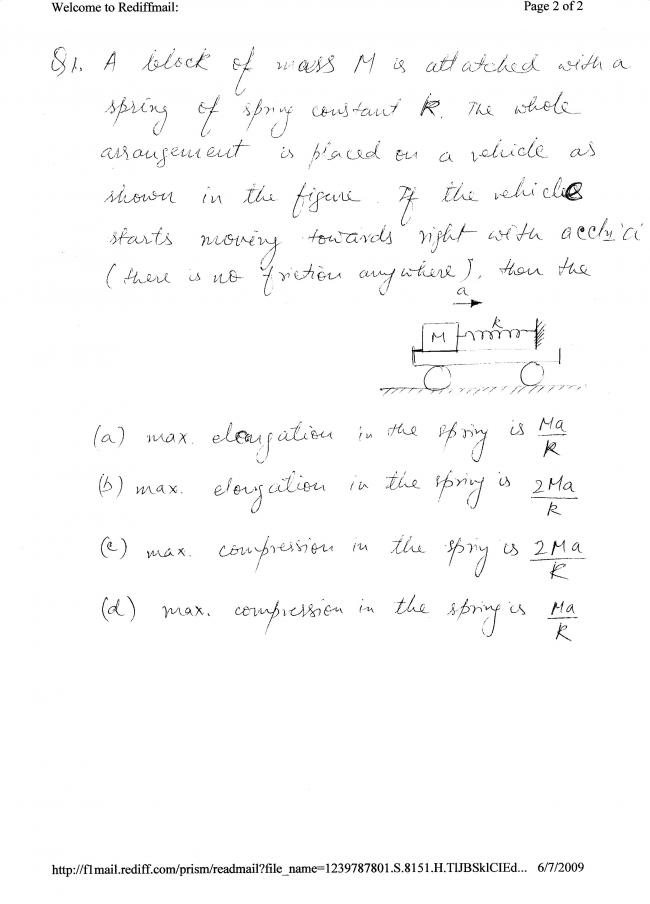max elongation is 3MA/k are you sure your options are rite?
10 Answers
The max elongation will be w.r.t to the vehicle
the force on the body at any instant=
ma-kx to the left
let max elongation be d
change in kinetic energy of m(in frame of vehicle) = work done by ma and spring (reverse)
so
as change in kinetic energy in vehicle's frame =0
ma*d-(kd2/2)=0
d=2ma/k
and further this is the elongation as it is clear :P
let now the compression be c
then again conserving energy from the point of its max elongation to max compression
we get change in kinetic energy= work done by ma(neg)+done by kx(pos)
0=-ma(c+d)+(kd^2-kc^2)/2
we already know d
so substituting we get c as 0 and -2ma/k out of which 0 is acceptable
so max elongation 2ma/k (remember it is with respect to the initial mean position)
and max compression =0
hey rohan the equilibrium position is at Ma/K so we have to calculate the maximum elongation from that point Ma/k will be the maximum elongation.
i already mentioned all reference frames and we cant say from which position as it is not mentioned in question
but rohan Ma=Kx only at equilibrium position in the frame of the trolley am i rite
I think the correct ans is b)...
For such problems, energy considerations are the best.
it should be MA/k as there is no concern with the movement of the cart with the elongitivity of the spring,dat is wat i understand ,pls restore my defaults...
Take the reference frame of the trolley. Then, the motion would be very much like that of a spring mass which is hung vertically and then released. The only difference is that in the present problem the system is horizontal. So the equilibrium w.r.t. the trolley is when the spring is elongated by an amount mg/k. And about this equilibrium extension, the system performs SHM w.r.t the trolley. Accordingly, the maximum elongation is 2ma/k. On the other hand the compression is only ma/k. So (b) and (d) are the correct options.
